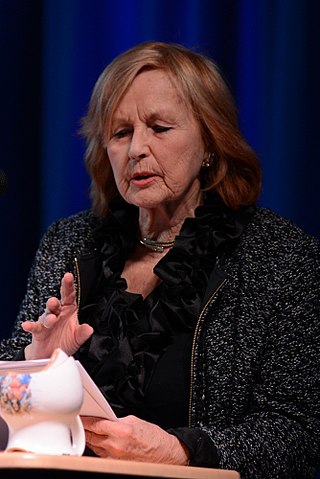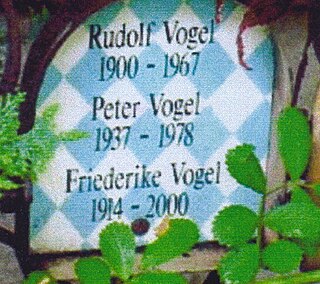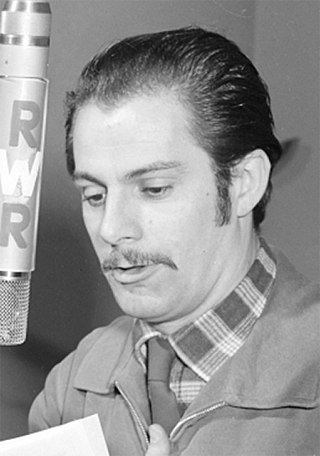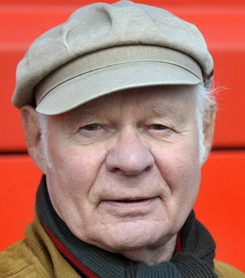
Hans-Joachim Kulenkampff, nickname Kuli was a German actor and TV host, remembered mainly as host of Einer wird gewinnen, a quiz show that ran from 1964 to 1987.
Franz Antel was a veteran Austrian filmmaker.
Die Flippers were a German Schlager group formed in 1964. They were one of the most successful Schlager groups of all time, and have been constantly recording and releasing new music since their self-titled debut album was released in 1970. They have released 45 albums, 5 of which have gone platinum, 24 gold. They have won 11 Goldene Stimmgabel awards in 1988, 1991, 1994, 1995, 1996, 1998, 1999, 2000, 2002, 2003 and 2004.

Brigitte Grothum is a German film actress. She has appeared in 50 films since 1955. She was born in Dessau, Germany.

Peter Vogel was a German film actor. He appeared in more than 60 films between 1954 and 1978. He was born in Munich, Germany and died in Vienna, Austria, after committing suicide. His father was the actor Rudolf Vogel. He was married to the Austrian actress Gertraud Jesserer and is the father of actor-journalist Nikolas Vogel. was interred next to his father at Bogenhausener Friedhof, Germany.

Martin Haase is a German linguistics professor at the University of Bamberg as well as a linguist, polyglot, and podcaster.

Georg Thomalla was a German actor. He appeared in about one hundred fifty film and television productions between 1939 and 2000 and was widely known in Germany for his comedic roles.

Hans Putz was an Austrian actor. He had a stage career, including working at the Schauspielhaus Zürich and the Volkstheater in Vienna; he also appeared in a number of films.

Franz Theodor Csokor was an Austrian author and dramatist, particularly well known for his expressionist dramas. His most successful and best-known piece is 3. November 1918, about the downfall of the Austro-Hungarian monarchy. In many of his works, Csokor deals with themes of antiquity and Christianity.

Ralf Wolter was a German stage and screen actor. Wolter appeared in nearly 220 films and television series in his over 60 years as a character actor.
Franz-Otto Krüger was a German film and television actor. Krüger already started his acting at Berlin theatres in 1934, but his career was interrupted by his service in the Second World War. He appeared in over 125 film and television productions between 1947 and 1987, mostly in supporting roles. One of his first films was Roberto Rossellini's neorealist classic Germany, Year Zero.
A Woman's Revenge is a 1921 German silent drama film directed by Robert Wiene and starring Vera Karalli, Franz Egenieff and Olga Engl. In order to punish her cold, brutal aristocratic husband for murdering her lover, a woman becomes a common prostitute to shame him. The film received largely negative reviews.
Uwe Harten is a German musicologist, who works in Austria.
Gerhard Heinz is an Austrian composer and pianist. He has worked on more than a hundred film scores during his career, including many sex comedies of the 1970s and various softcore erotic films.

Tempo is the first German brand for paper handkerchiefs. Today, the brand belongs to Essity.
This page is based on this
Wikipedia article Text is available under the
CC BY-SA 4.0 license; additional terms may apply.
Images, videos and audio are available under their respective licenses.








